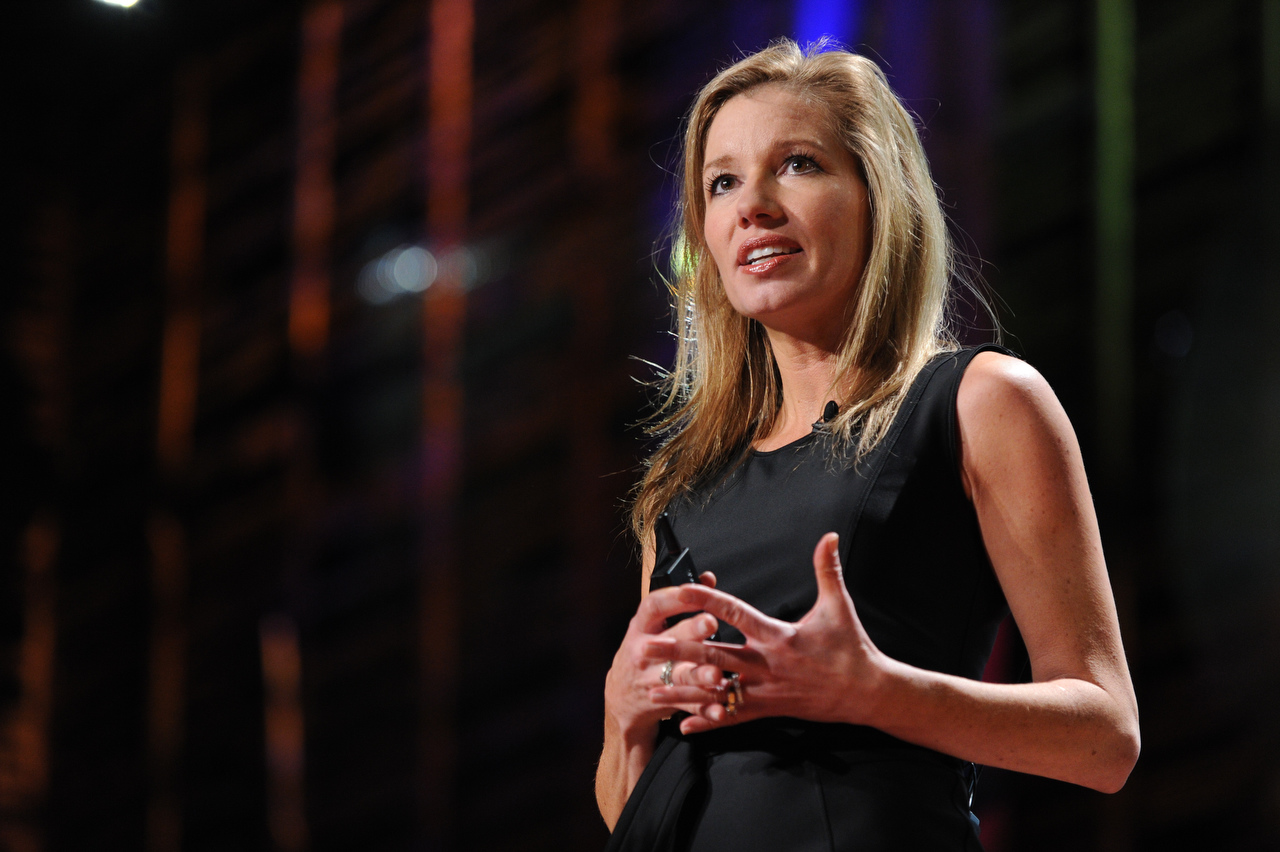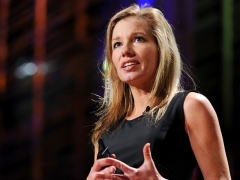
At TED2010, Stacey Kramer told the moving story of the most treasured gift she ever received: a brain tumor the size of a golf ball.
 Stacey Kramer: The best gift I ever survived
Despite the pain, she wouldn’t have traded her experience for anything – because, in the end, it changed her life for the better.
Stacey Kramer: The best gift I ever survived
Despite the pain, she wouldn’t have traded her experience for anything – because, in the end, it changed her life for the better.
Kramer’s poignant talk is featured on today’s edition of TEDWeekends on the Huffington Post, as she and other bloggers share stories of turning hardship into gratitude. Here are three powerful stories:
Harshada Rajani: The Cost of My Catastrophe
Finding opportunities out of tragedies, making dreams out of nightmares, and discovering gifts out of punishments. Those seem like the great accomplishments of an insightful survivor, but near impossible for a naive fighter. My wonderful life was stolen like a secret, thrown away like garbage, silenced like a sin, for no reason any doctor or priest could come up with. This sounds like nothing more than a harsh tragedy, seems like nothing more than an inescapable nightmare, and feels like nothing more than an unfair punishment, for being a little too happy. I can’t readily see any opportunities, dreams, or gifts in this mess I have to now call my life. But what if I could dig a bit deeper, find in me new levels of maturity, and see this as a gift?
It’s so much easier to lazily lie in my comfortable bed of bitterness. It’s so much easier to get lost in the jargon of negativity and regret. It’s so much easier to hate the world for doing this to me. But if I consciously choose to look past the simplicity of this as a punishment, I know I can realize the complexity of this as a gift. Read the full essay here »
Lawrence G. Calhoun: Can Trauma Really Be a Gift?
Stacey Kramer describes her experience with a brain tumor as a gift. She wouldn’t want to wish serious illness on anyone, but her own illness was a gift nonetheless. Elements of this gift included deeper and more meaningful friendships, a strong sense of love and support, new vitality, and deeper spirituality.
Stacey’s experience mirrors a body of research of which I’ve been a part for many years. It’s the study of what my colleague Richard Tedeschi and I have called post-traumatic growth. The idea that the struggle with very challenging life circumstances can lead to positive transformation is ancient. It seems to be part of the human condition. Our work suggests that the transformations Stacey experienced are shared, at least in some ways, by many other people facing a wide range of crises. People report changing priorities, having greater appreciation for what life still has to offer, a deepened connection with others and perhaps greater compassion for others who suffer, positive changes in their understanding of spiritual and existential questions, and sometimes a radical change in the direction they choose to take their lives. Read the full essay here »
Stacey Kramer: How My Brain Tumor Was The Most Unexpected Gift I Received
Recently, I spoke to a class of at-risk high school kids. These kids, mostly non-white, have faced many different types of challenges. Some come from abusive parents. Some don’t have parents. Some don’t have a bed. Nearly all rely on the donated food they get at school as their daily sustenance. Every one faces economic challenges of varying proportions. For a few, it takes several buses and nearly two hours to get to school.
These kids are barely making it through high school — at a time when many of my peers’ kids are celebrating acceptances to upper echelon colleges. This school is their last chance. Simply getting to school on a daily basis is a hardship when you don’t have any money or any food. Or anyone to motivate you to do so. Read the full essay here »
Comments (6)
Pingback: Can trauma be a gift? | Share Life
Pingback: Suicide, a bone of contention? | The Nameless One